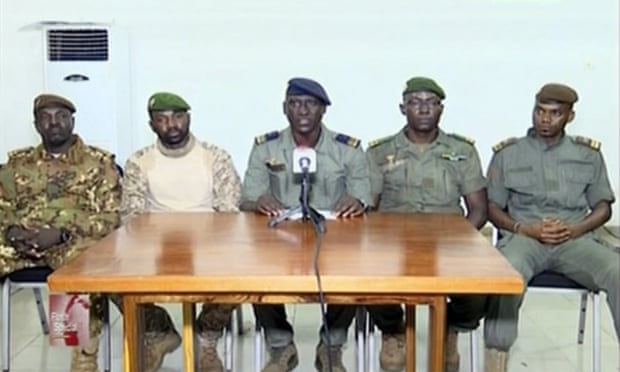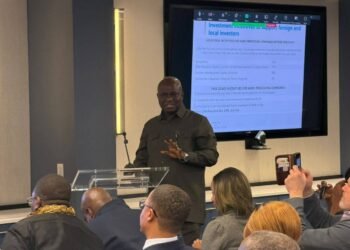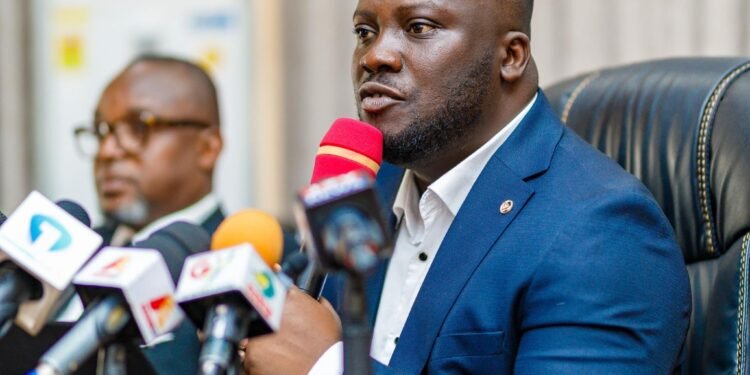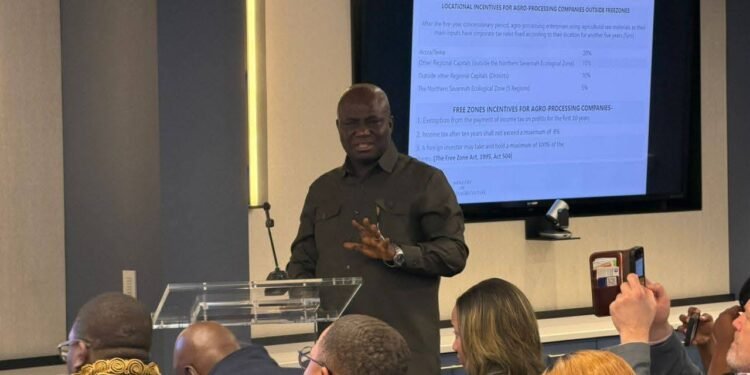Mali President, Ibrahim Boubacar Keita, resigned and dissolved parliament hours after mutinying soldiers detained him at gunpoint, plunging a country already facing a jihadist insurgency and mass protests deeper into crisis.
Wearing a blue surgical mask amid the coronavirus pandemic, the President said on national broadcaster ORTM that he had little choice but to stand down to avoid bloodshed, and the country’s national assembly and government would now be dissolved.
“For seven years I have with great joy and happiness tried to put this country back on its feet,” Keita said. “If today some people from the armed forces have decided to end it by their intervention, do I have a choice? I should submit to it because I don’t want any blood to be shed.”
Mali’s new military rulers have promised “a civilian political transition” that will lead to a general election after a “reasonable time”.
In a short televised statement on Wednesday morning, the soldiers who are now in charge of the country after a military coup on Tuesday said they were “not interested in power but in the health of the nation” but had intervened because of growing “chaos, insecurity and anarchy”.
Representing the “National Committee for the Well Being of the People”, Col Maj Ismaël Wagué promised polls to “give Mali strong institutions capable of better managing our everyday lives and restoring confidence between the governed and the governors”
The M5-RFP coalition behind the protests signalled support for the mutineers’ action, with spokesman, Nouhoum Togo saying, it was “not a military coup but a popular insurrection”.
Hundreds of anti-government protesters poured into a central square in Bamako to celebrate and cheer the mutineers as they drove through in military vehicles and fired rounds of celebratory gunfire.
Elsewhere, more than a thousand people gathered outside the president’s house, though they were prevented from entering by soldiers. However, protesters did enter and loot the empty house of Keita’s son Karim, which is located nearby. Karim Keita resigned in July from his post as head of parliament’s defence committee amid a spike of violence and calls for his father’s resignation.
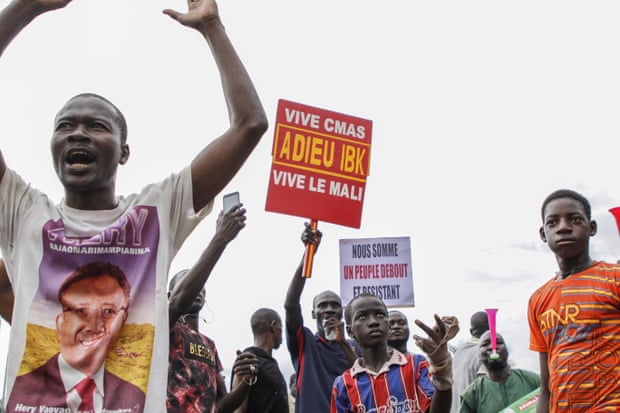
A building owned by Mali’s Minister of Justice was also looted and set on fire. A mutiny in 2012 at the same Kati base led to a military coup that collapsed then-President Amadou Toumani Toure’s government and hastened the fall of Mali’s north to jihadist militants.
France and other international powers as well as the African Union denounced the mutiny. U.N. Secretary-General Antonio Guterres called for the immediate release of Keita and the other detainees.
“I energetically condemn the arrest of President Ibrahim Boubacar Keita, the prime minister and other members of the Malian government and call for their immediate liberation,” African Union Chairman Moussa Faki Mahamat said on Twitter.
French Foreign Minister Jean-Yves Le Drian said France “condemns in the strongest terms this grave event”.
The Economic Community of West African States condemned “the overthrow by putschist soldiers of the democratically elected government”. In a statement, it ordered the closing of regional borders with Mali and suspension of all financial flows between Mali and its 15 member states.
The European Union also condemned the apparent “coup attempt”,
“The European Union condemns the coup attempt underway in Mali and rejects any unconstitutional change,” EU High Representative for Foreign Affairs, Josep Borrell, said in a statement.
“This can in no way be an answer to the deep socio-political crisis that has hit Mali for several months,” he added
The United Nations Security Council will hold an emergency meeting to discuss the situation on Wednesday.

